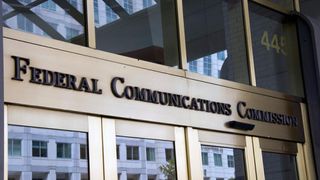FCC Looks Afresh at Reasonable Broadband Deployment

The FCC is seeking input on its annual assessment of whether advanced telecommunications is being deployed to all Americans on a reasonable and timely basis and the new FCC management is asking some questions.
If the FCC finds that is not the case, as has been the finding under recent Democratic chairs, the commission is empowered to regulate to make it so.
FCC Chairman Ajit Pai has been critical of those previous conclusions, based on the fact that high-speed broadband deployment is not yet available to 100% of the country.
The new inquiry will focus on whether the progress toward universal access has been reasonable and timely. In the just-released so-called "Sec. 706" inquiry, the FCC says it will start afresh. The FCC released the 2016 Notice of Inquiry Aug. 4, 2016, but never issued a report on the findings.
"In light of the changes in the industry and our recent actions to encourage broadband deployment, we propose to start this Inquiry afresh, with updated data and questions focused on the current progress of deployment of advanced telecommunications capability," the FCC said.
Democrat Mignon Clyburn had some issues and only concurred in the inquiry, which is short of an endorsement, but also short of an opposition.
Among the questions teed up are whether fixed and mobile availability equates to reasonable and timely deployment—recent reports found that mobile was not a sufficient substitute for fixed given their different technical limitations.
The inquiry proposes to maintain the 25 Mbps downstream, 3 Mbps upstream "table stakes" definition of fixed high-speed broadband and what the benchmarks for mobile should be—the FCC proposes 10/1 Mbps. There have been no previous benchmarks, not surprising since the FCC was not considering mobile deployment as that reasonable substitute for fixed.
It asks if there should be other benchmarks, like data allowances, latency, reliability, and other limitations, for reasonable and timely deployment, but adds that those suggesting there should be need to make a good case, backed with specific methodologies for measurement, of why they would be needed.
The inquiry notice says there have been criticisms of the previous Sec. 706 reports for a lack of clarity and "economic rigor," criticisms the chairman himself has raised.
The item asks for input on how to make analysis clearer and more predictable.
As to the issue of progress toward the Telecommunications Act goal or reasonable and timely deployment, the item proposes "to measure whether advanced telecommunications capability is being deployed by evaluating progress—specifically, comparing deployment to census blocks in the present year to deployment to census blocks in previous years," the item said. "In conducting this analysis, we propose to analyze fixed and mobile broadband separately and then consider the totality of the evidence in our ultimate determination of whether advanced telecommunications capability is being deployed in a reasonable and timely manner."
That clearly means no automatic non-passing grade for less than 100% access.
As a possible approach, the item cites a USTelecom response to the 2016 inquiry that the FCC focus on year-to-year progress rather than what percentage of the population has, or doesn't have, access to a particular speed benchmark.
Given that the statute instructs the FCC to use “price cap regulation, regulatory forbearance, measures that promote competition in the local telecommunications market, or other regulating methods that remove barriers to infrastructure investment," the item asks what those, in addition to ones already in progress, should be.
Commenters have until Sept. 7 to weigh in, with replies due Sept. 22.
Clyburn had several bones to pick with the inquiry. For one, she thought retaining the 25/3 Mbps definition of high speed was too low.
She also said proposing to include mobile in the Sec. 706 reasonable and timely definition was problematic.
"Consumers who are mobile only often find themselves in such a position, not by choice but because they cannot afford a fixed connection," she said in her concurring statement. "Today, mobile and fixed broadband are complements, not substitutes. They are very different in terms of both the nuts and bolts of how the networks operate, and how they are marketed to customers, including both from the perspective of speed and data usage."
Clyburn didn't like the year-over-year metric, saying it was contrary to the statute.
Finally, she took issue with asking whether the FCC should establish the speed benchmark based on the tier consumers are subscribing to. She said that presumes consumers are getting what they want rather than all they can get or afford to get.
"I am fearful that we are starting down a path to look only at percentage coverage, and not at whether service is truly affordable and accessible for all Americans," she said.
Broadcasting & Cable Newsletter
The smarter way to stay on top of broadcasting and cable industry. Sign up below
Contributing editor John Eggerton has been an editor and/or writer on media regulation, legislation and policy for over four decades, including covering the FCC, FTC, Congress, the major media trade associations, and the federal courts. In addition to Multichannel News and Broadcasting + Cable, his work has appeared in Radio World, TV Technology, TV Fax, This Week in Consumer Electronics, Variety and the Encyclopedia Britannica.

